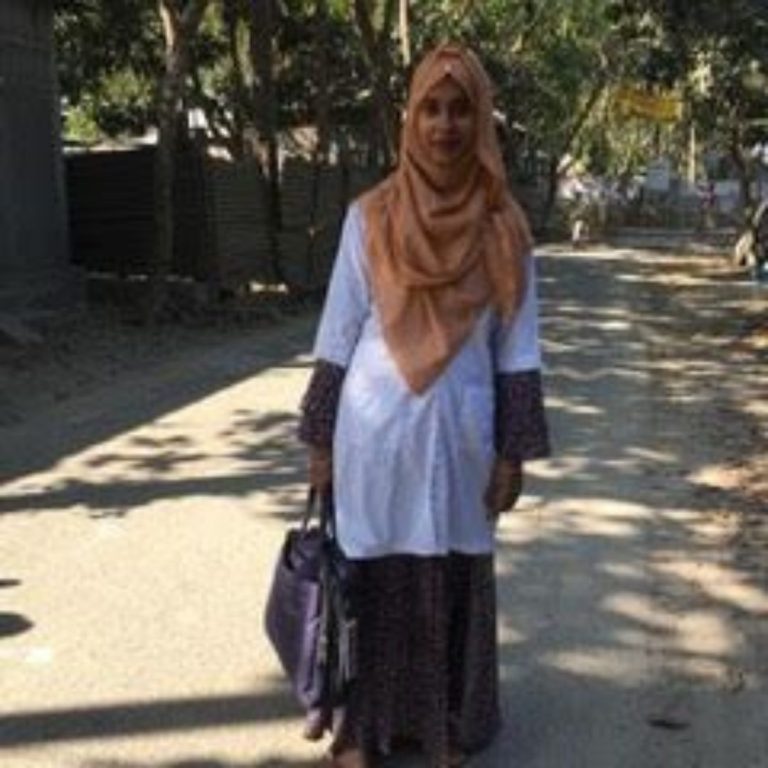Picture not being able to recognise the faces of your family and friends because your vision is so blurry.
All you can really see is shapes in the daylight and dark.
Imagine if this could be fixed but because you are poor and living in rural Bangladesh, you can’t get access to the support you need to do it …
Then a woman named Runa (photo above) comes to your village and knocks on your front door …
Partnership makes it Possible
Symbiosis partners with Operation Eyesight to participate in the ‘Avoidable Blindness Free Village’ initiative (ABFV). The ABFV initiative sets out to survey every single household with the support of community health workers like Runa in a catchment area over several years to allocate resources and pathways to address avoidable loss of vision. And it’s working!
In May 2024, we are celebrating four villages officially declared free of avoidable blindness. This milestone is due to years of committed work from Symbiosis staff members like Runa and her colleagues Arif and Mahbub, as well as, local eye hospitals.
How do they do it?
Symbiosis community health worker Runa goes door to door and interviews all household members about their vision and any eye problems they might have. She takes an eye chart and a 3 metre rope with her and measures the vision in both eyes of every person in the household and records it all.
Runa has been with this project right from the beginning and has shown great initiative and dedication, gaining the trust of the community. She is recognised and appreciated throughout the community and her excellent rapport with the villagers has resulted in many people being motivated to address their eye problems.
If there are people in the household with reduced vision or concerns about their eyes, Runa encourages them to come into the vision centre for an eye examination with Arif, the optometrist. In many cases, the poor vision can be solved with a pair of glasses, which can often be made in the clinic on the same day by Mahbub, the optician. If poor vision is due to a cataract or some other problems that can’t be fixed with glasses, the person is referred to the nearest eye hospital for further treatment.
What happens if glasses or surgery isn’t possible?
Sometimes people have irreversible vision loss, in these cases an ophthalmologist will sign a certificate to state that no further improvement in vision can be gained for this person. In other cases, a person may have an eye condition that can be treated but they are too frightened or not inclined to seek treatment.
Where this is the case, staff from the vision centre will visit the person multiple times to discuss any concerns or fears they have and encourage them to access treatment. If they still refuse after regular visitation and discussion with a health professional, they may choose to sign (or thumbprint) a document to confirm understanding that their condition is curable, but they are declining treatment.
Once everyone in a village/catchment area has been surveyed and treated wherever possible, a village can be said to be ‘free of avoidable blindness’.
Your donations made to the 2024 Appeal allow Runa, Arif and Mahbub and others in the Symbiosis team to continue working amongst the poorest of the poor in Bangladesh, giving each person, village by village, the opportunity to have avoidable blindness treated.
